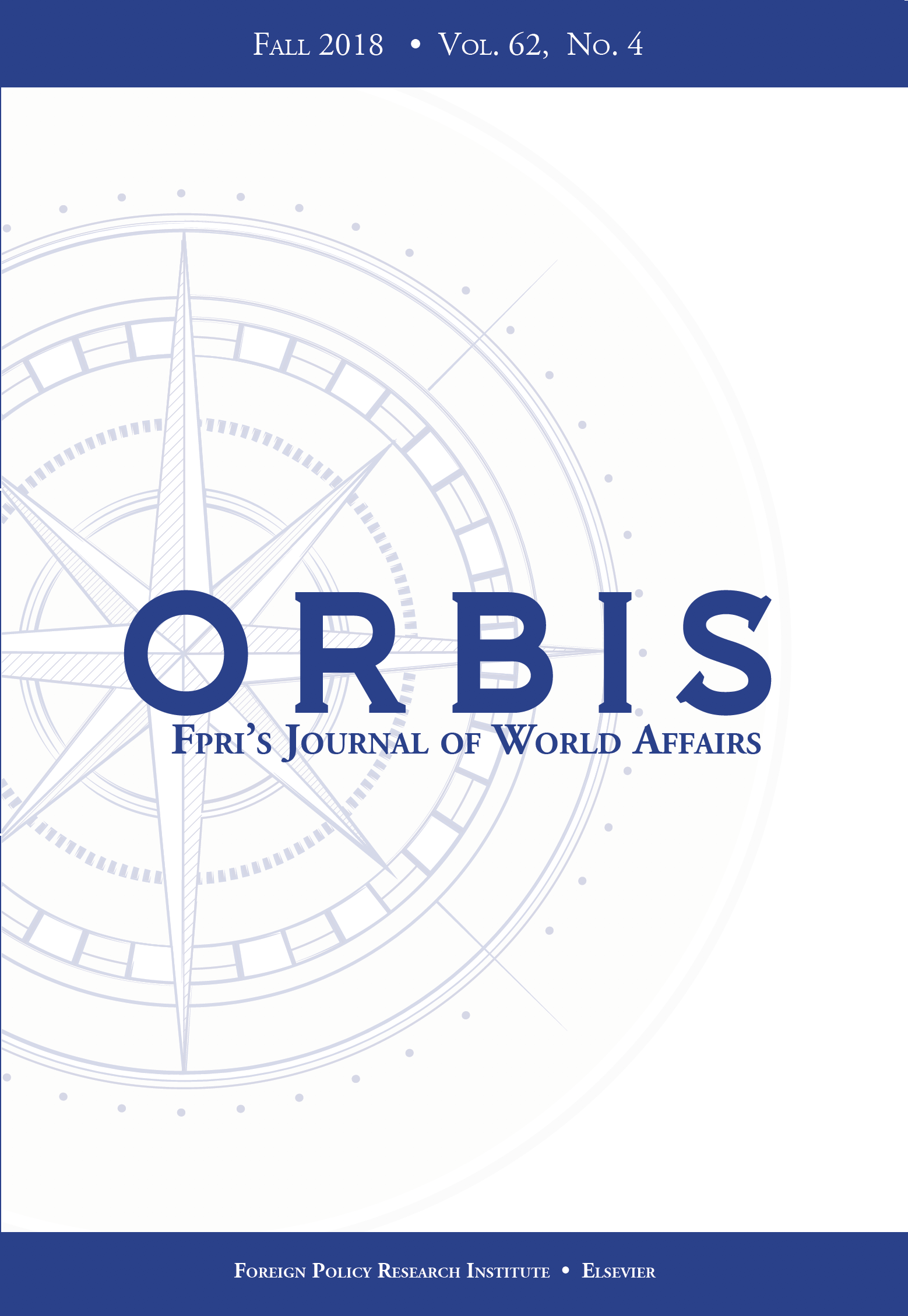A nation must think before it acts.
We begin the Fall 2018 issue of Orbis with an essay by FPRI’s Pulitzer Prize-winning historian Walter McDougall, in which he examines one strain of the American political legacy: the Atlantic Republican tradition that placed a special emphasis on “civic virtue.” Following in the tradition of J.G.A. Pocock, McDougall traces the transmission of this strand of republicanism to Machiavelli and Renaissance Florentine Italy and beyond.
Our first article cluster examines the relationship between theory and practice in the creation and conduct of public policy. In the first essay of this group, David A. Cooper, Nikolas K. Gvosdev, and Jessica D. Blankshain seek to refine one of the venerable models proposed by Graham Allison in his immensely influential study of the 1962 Cuban Missile Crisis, Essence of Decision. Allison’s conceptions of bureaucratic politics and organizational process were revolutionary in focusing analytic attention on what previously had been underappreciated organizational dynamics shaping the outcome of virtually all national security decisions. But with the growth of such concepts as the “administrative state,” essentially an extra-constitutional fourth branch of government and the “deep state,” a particularly sinister version of the administrative state, the authors argue that it is time to revisit Allison’s model to address the dramatic changes that have been altering the forms and functions of the U.S. national security landscape for at least the last two decades.
In the second article of this cluster, Andrew Stravers explains why the expansion of U.S. military presence in Eastern Europe in response to the Russian annexation of Crimea was too little to deter further Russian aggression or to reassure American allies. The answer, of course, lay in the realities of partisan domestic politics.
Next, Nathaniel Allen examines how the current U.S. military strategy in Africa differs from past Africa strategies and assesses how well it meets the stated U.S. objectives in the region: neutralizing transnational threats while contributing to the continent’s political stability. He judges the U.S. performance has been mixed and concludes by recommending certain adjustments to the U.S. Africa strategy.
Nick Schifrin provides a campaign analysis of the “Iraq Surge” of 2007-2008. Schifrin concludes that, unfortunately President George W. Bush failed to look beyond his own term and embrace a strategy that might have proved more durable: namely, not only opening the window to political reconciliation in Iraq, but also “wedging” the United States into the window until reconciliation could be achieved, no matter how long that took.
Our second article cluster examines U.S.-European relations. First, David G. Haglund and Maud Quessard address speculation about a strategic divorce between America and its transatlantic allies, and if such a divorce were to occur, would it be possible to isolate Western Europe in such a way as to avoid the unraveling of entire community known as the Western “zone of peace.” Next, Andrew Glencross and David McCourt examine the challenges and contradictions that arise from the United Kingdom’s decision to withdraw from the European Union.
In our penultimate article, Mehran Kamrava examines three reasons that tensions in the Middle East are unlikely to be resolved anytime soon. They include: 1) the weakening role of the United States as a power balancer; 2) the replacement of power multipolarity with ideological multipolarity, with two of the regional powers, Iran and Saudi Arabia, fanning opposing sectarian flames to further their respective strategic objectives; and 3) the fact that this new strategic competition is being played out in several newly weakened or collapsing states such as Libya, Syria, and Yemen as well as previously weakened states, such as Lebanon and Iraq.
Finally, Montgomery McFate assesses the work of Christiaan Snouck Hurgronje (1858-1936), a Dutch scholar of Islam, who served as a military anthropologist during the Aceh war in the Dutch East Indies. She argues that there is much to be learned from both Snouck Hurgronje’s work and his approach to both Islam and insurgency today.




